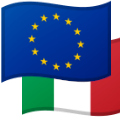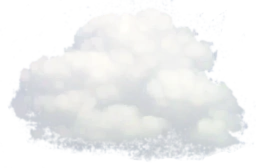What is free software?

Free software identify mobile and desktop apps, interfaces, frameworks and libraries with freedom-respecting licensing terms that guarantee the rights to execute, redistribute, study and improve their source code.
Free software is a type of Open Source software, so all users must always retain unlimited access to the source code.
What is libre software?
Libre software commonly refers to the same concept of "free software" with minimal differences.
The term "libre" is a modern synonim of "free", widely used in the free software community. The term derives from the French 🇫🇷 and Spanish 🇪🇸 word for free and it underlines that a certain software respects your freedom and liberty. It is often used to prevent ambiguities in countries where English is not the main tongue.
What is FOSS? What is F/LOSS?
FOSS means "Free and Open Source software".
F/LOSS means "Free, Libre and Open Source software".
Both acronyms identify applications that are not closed source and that offer full transparency of their inner workings and development processes.
Be careful, as these acronyms are used where a rough categorization is needed and their meaning depends on the context where you find them.
What about freeware and shareware?
A shareware application is a trial which can be used at no cost, but only for a limited time or with other limitations until the user purchases a full copy. Freeware applications extend the concept by completely removing the time limit and by (sometimes) having no usage limitations.
Both kind of products are closed source, non-free and non-libre. All terms listed in this page explicitly exclude the concepts of freeware and shareware, which are licensing models for proprietary software.
Are all free software also Open Source?
Yes, because all free / libre apps must guarantee that their source code is accessible by everyone.
free software is a subset of Open Source Software which grants additional fundamental rights to the end users through legal and technical means.
Are all Open Source apps also free / libre?
No, Open Source software doesn't offer the same fundamental rights and permissive licensing terms as free software. Non-free / Non-libre licenses can impose limitations on how the sourcecode must be used, modified or redistributed.
Is free software regulated by a central authority?
No, all FOSS is governed exclusively by individual maintainers, volunteer organizations and sometimes companies. A specialized software license, always included in the codebase and visible to the end user, defines how each open codebase can be used, improved, and redistributed.
Do free software developers have to accept user contributions?
No, free software licenses do not typically require developers or maintainers to accept contributions from users.
Projects may choose to review, accept, or reject contributions from users based on their own criteria.
However, most FOSS licenses grant the right to fork the project: users and developers often organize to do so when they feel their contributions were unfairly rejected.
What are hostile forks?
Hostile forking is the controversial practice of publishing a clone of an active FOSS project against the author's will, without a different name and a clear attribution, often to compete or undermine the original project. Some consider it a form of exploitation and can harm the original project and confuse most end users.
Hostile forks may not meet the original quality and security standards.
What does the "-or-later" clause mean?
The "-or-later" clause allows users to pick which version of the same free software license they want to use, even if it was created far after the licensed software. Its usage is controversal: it creates uncertainty when determining if a software is really free and can be used to sneak in terms incompatible with freesoftware principles.
For these reasons, legal savvy developers often prefer licenses marked with "-only".
What are viral licenses?
Viral free software licenses require that all forks be licensed under the same license as the original software. This creates a "viral" effect, where the license terms are propagated to all derivative works.
GNU licenses fall in this category. These complex licenses guarantee user freedom but limit the ability to reuse and combine code, create proprietary derivative works, and use the software for commercial purposes.

Modern free software licenses like the EUPL are not called viral because they offer explicit compatibility with code licensed under other compatible licenses. This guarantees user freedom while offering more flexibility for growing codebases.
If you want to know more about the EUPL and all compatible software licenses, you can download the official depliant.
What are permissive licenses?
Permissive free software licenses never require forks to be licensed under the same license as the original software. The terms can be propagated to derivative works if you wish so, but this is not required.
The Expat and Apache licenses fall in this category.
These licenses are often simpler and allow for more flexibility in how the software is used and distributed.


